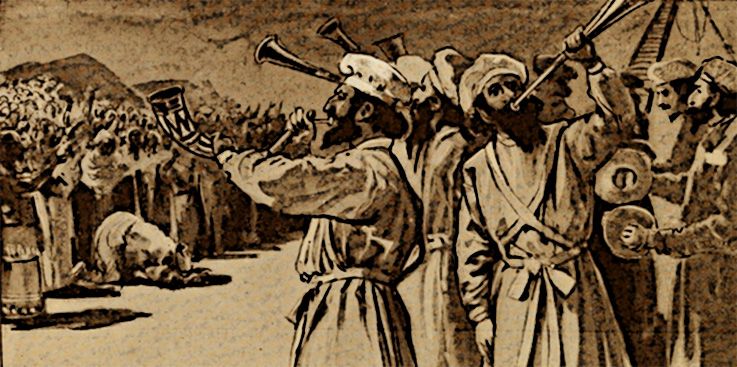The seventh year and the year of jubilee are not mentioned in the Ten Commandments. They were to be kept only “in the land” of Israel and were not once kept in the wilderness before the Israelites entered Canaan. They are parts of that “law of commandments contained in ordinances” (Ephesians 2:15) that ended at the cross.
Adapted from H.M.S. Richards, Hard Nuts Cracked, 3.
The contrast between the Sabbath of the Lord and these sabbaths of the Hebrews is strongly marked.
- The Sabbath of the Lord was instituted at the close of the first week of time; while these were ordained in connection with the Jewish feasts.
- The one was blessed and hallowed by God, because that he had rested upon it from the work of creation; the others have no such claim to our regard.
- When the children of Israel came into the wilderness, the Sabbath of the Lord was an existing institution, obligatory upon them; but the annual sabbaths then came into existence. It is easy to point to the very act of God, while leading that people, that gave existence to these sabbaths; while every reference to the Sabbath of the Lord shows that it had been ordained before God chose that people.
- The children of Israel were excluded from the promised land for violating the Sabbath of the Lord in the wilderness; but the annual sabbaths were not to be observed until they should enter that land. This contrast would be strange indeed were it true that the Sabbath of the Lord was not instituted until the children of Israel came into the wilderness of Sin; for it is certain that two of the annual sabbaths were instituted before they left the land of Egypt.
- The Sabbath of the Lord was made for man; but the annual sabbaths were designed only for residents in the land of Palestine.
- The one was weekly, a memorial of the Creator’s rest; the others were annual, connected with the memorials of the deliverance of the Hebrews from Egypt.
- The one is termed “the Sabbath of the Lord,” “my Sabbaths,” “my holy day,” and the like; while the others are designated as “your sabbaths,” “her sabbaths,” and similar expressions.
- The one was proclaimed by God as one of the ten commandments, and was written with his finger in the midst of the moral law upon the tables of stone, and was deposited in the ark beneath the mercy-seat; the others did not pertain to the moral law, but were embodied in that hand-writing of ordinances that was a shadow of good things to come.
- The distinction between these festivals and the Sabbaths of the Lord was carefully marked by God when he ordained the festivals and their associated sabbaths. Thus he said:
“These are the feast of the Lord, which ye shall proclaim to be holy convocations, …. BESIDE the Sabbaths of the Lord.”

